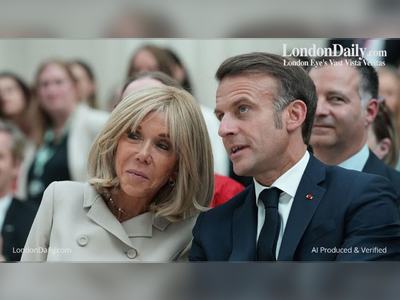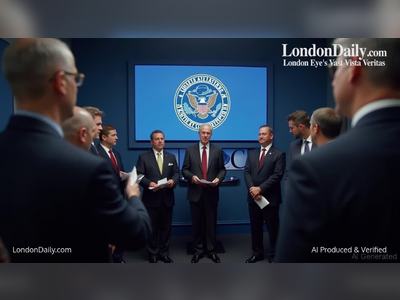Trump and Starmer Clash Over UK Recognition of Palestinian State Amid State Visit
As Donald Trump visits the UK, Prime Minister Keir Starmer signals Britain will soon recognise a Palestinian state—sparking public disagreement between the leaders
President Donald Trump and British Prime Minister Keir Starmer acknowledged a public divide over the recognition of Palestine as a state during Mr. Trump’s state visit to the United Kingdom.
Mr. Starmer has made clear that unless Israel takes specific actions—such as agreeing to a ceasefire in Gaza, allowing unhindered delivery of aid, committing against annexing the West Bank, and pursuing a long-term peace process favouring a two-state solution—Britain will formally recognise a Palestinian state in September.
This position was outlined in a recent cabinet meeting and echoed at the United Nations General Assembly setting.
Mr. Trump expressed disagreement with the plan, stating that recognition of Palestine under the current conditions would “reward” Hamas, though he emphasized maintaining a shared commitment to peace with Mr. Starmer.
In conversations during the visit, the two leaders also signed a technology partnership aimed at strengthening collaboration in artificial intelligence, cloud computing, and other high-tech fields.
They discussed the ongoing wars in Gaza and Ukraine, with Starmer repeating that Britain supports “a viable Palestinian state,” while Trump focused more on outcomes tied to hostage release and humanitarian concerns.
Although the UK government had been under mounting pressure from members of Parliament and the public to move on recognition, Starmer emphasised that the timing would depend on whether Israel fulfills its conditions, and stated that the decision is not intended to be reactive to Mr. Trump’s visit.
Reports suggest that Britain is set to formally recognise Palestinian statehood shortly after Mr. Trump’s departure from the country.
Mr. Starmer has argued the decision is meant to maximise diplomatic leverage and align with growing international support; other nations, including France, Canada, and Australia, are similarly considering or moving toward recognising Palestine this month.
Mr. Trump’s opposition is shaping part of the public debate, but Mr. Starmer has defended Britain’s path as measured, principled, and firmly rooted in humanitarian imperatives and diplomatic strategy.
The unfolding development underscores how Middle East policy, public pressure, and geopolitical strategy are increasingly intertwined for both the UK and US.
As the deadline approaches in September, all eyes are on whether Israel’s next moves will allow the recognition to proceed as Prime Minister Starmer has outlined.
Mr. Starmer has made clear that unless Israel takes specific actions—such as agreeing to a ceasefire in Gaza, allowing unhindered delivery of aid, committing against annexing the West Bank, and pursuing a long-term peace process favouring a two-state solution—Britain will formally recognise a Palestinian state in September.
This position was outlined in a recent cabinet meeting and echoed at the United Nations General Assembly setting.
Mr. Trump expressed disagreement with the plan, stating that recognition of Palestine under the current conditions would “reward” Hamas, though he emphasized maintaining a shared commitment to peace with Mr. Starmer.
In conversations during the visit, the two leaders also signed a technology partnership aimed at strengthening collaboration in artificial intelligence, cloud computing, and other high-tech fields.
They discussed the ongoing wars in Gaza and Ukraine, with Starmer repeating that Britain supports “a viable Palestinian state,” while Trump focused more on outcomes tied to hostage release and humanitarian concerns.
Although the UK government had been under mounting pressure from members of Parliament and the public to move on recognition, Starmer emphasised that the timing would depend on whether Israel fulfills its conditions, and stated that the decision is not intended to be reactive to Mr. Trump’s visit.
Reports suggest that Britain is set to formally recognise Palestinian statehood shortly after Mr. Trump’s departure from the country.
Mr. Starmer has argued the decision is meant to maximise diplomatic leverage and align with growing international support; other nations, including France, Canada, and Australia, are similarly considering or moving toward recognising Palestine this month.
Mr. Trump’s opposition is shaping part of the public debate, but Mr. Starmer has defended Britain’s path as measured, principled, and firmly rooted in humanitarian imperatives and diplomatic strategy.
The unfolding development underscores how Middle East policy, public pressure, and geopolitical strategy are increasingly intertwined for both the UK and US.
As the deadline approaches in September, all eyes are on whether Israel’s next moves will allow the recognition to proceed as Prime Minister Starmer has outlined.










